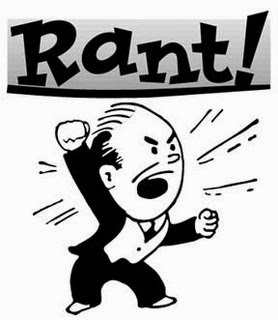
Dear Insurance Company Executives:
Our hearts go out to you. Many in the public simply do not understand how hard your jobs are. And no where is your job as hard as when it comes to your Medicare Advantage product.
Most Medicare patients are in fee for service Medicare. Medicare pays providers for each service the senior needs. Medicare Advantage plans offer an additional option for seniors. Instead of fee for service Medicare, they sign their care over to a Medicare Advantage plan offered by your companies.
The good part about this is that your company gets paid by Medicare. But the bad news is that your company then becomes responsible for all the senior’s health care costs. If the senior costs less then your payment from Medicare you make money. But if they cost more, you lose money. And many seniors need a lot of healthcare and cost a lot of money. Money that should be going to your shareholders and funding the large bonus payments you so richly deserve gets diverted to providing health services.
So you have a big challenge. You need to market your plan in such a way that less expensive patients choose to enroll in your plan and expensive older patients stay away. One pesky rule that makes this difficult is a Medicare regulation that you enroll all who choose your plan and offer at least the same package of services provided by fee for service Medicare.
But, all is not lost. You do have it in your power to influence who enrolls in your plan. Through clever marketing, you can make it more likely that healthier less costly patients enroll in your plan. And you can increase the chance that more costly less healthy patients stay in fee for service Medicare and stay away for your plan. If you succeed, you may be able to substantially decrease the amount of government Medicare $$ you have to spend on health care.
There is a two part focus to this strategy. Part 1 is to target your marketing towards less costly patients. To do this, you simply need to recognize that seniors who have good functional status are less expensive than those who have less good functional status. This includes seniors who are physically robust, have good cognitive function, and are socially active.
So selectively target your marketing to these types of seniors. For example, advertise in magazines that cater to the physically active–something like golf magazine. Advertise in the opera program to target seniors who are health enough to get out and are much more likely to have good cognitive function. Set up marketing tables at the ballpark. Target seniors who are still able to travel. Target seniors still able to play bridge, or are golfers or bowlers. Maybe make it slightly difficult to call your information line so that only those with good cognitive function can figure out how to get through. On your marketing brochures show pictures of physically active, healthy looking seniors.
The second component of this strategy is to make sure you don’t do anything to make your Medicare Advantage plan look attractive to seniors most likely to cost the most–particularly those who are frail. This includes seniors with functional deficits (such as difficulty with basic activities like bathing, dressing, and walking), depression, or cognitive impairment. So no pictures of seniors in wheelchairs in your marketing brochure! No pictures of happy seniors getting physical assistance from loving family members!
Above all, don’t get known for excellence in geriatric care. You don’t want to be known for innovative care programs for the conditions that most impact aging senior populations. For example, there are proven and highly effective team based multidisciplinary interventions that improve care for high cost conditions such as dementia and depression. If you offer these interventions, don’t talk too loudly about them! If patients with these conditions sign up, you will find yourself spending money on healthcare instead of rewarding your shareholders and executives.
Will careful marketing like this really work? Well, a recent study in the New England Journal of Medicine shows the answer is a resounding yes.
This study looked at what happened when Medicare Advantage plans offered a fitness membership benefit. This is a terrific way to selectively enroll healthier less costly patients. Seniors healthy enough to exercise will certainly cost less. And this benefit is unlikely to appeal to costly patients such as those who are frail, have depression, or have dementia.
The authors of this study proved the value of the fitness benefit with an elegant approach. They examined 11 Medicare Advantage plans that offered a new fitness benefit. They compared the health of patients enrolled before the fitness benefit to patients enrolled after the fitness benefit. They found that after the fitness benefit was introduced, seniors were
- More likely to have excellent or very good health (35% after, 29% before)
- Less likely to have difficulties with moderate activities (46% after, 51% before)
- Less likely to have difficulty walking (25% after, 33% before)
These types of health differences are strongly associated with health care costs and are very likely to result in markedly reduced health spending. And while CMS is technically supposed to adjust the payments to Medicare Advantage Plans based on the health risk of patients they enroll, their risk adjustment methods are very crude and very easy to manipulate. They only consider factors measured in the Medicare data such as diagnosis codes. They don’t consider factors that have hugh impacts on what patients will cost such as physical function, cognitive function, wealth, and health habits.
So, the good news is that with manipulative marketing, you can position your Medicare Advantage plan so that less costly patients are more likely to enroll and costly patients stay away.
One day, Medicare may get serious about structuring payments so that there is actually an incentive to enroll the most needy seniors and reward plans that provide good quality of care to them.
To start, they could get serious about accurate risk adjustment that considers important factors impacting cost in seniors–factors like physical disability, cognitive impairment, depression, and social isolation.
But there is little evidence Medicare will structure its program anytime soon to be truly responsive to the most serious health concerns impacting seniors. So, no need for insurance executives to worry. With good marketing, your Medicare Advantage plan can be a profit center that pays wonderful dividends to you and your shareholders.
by: ken covinsky @geri_doc



